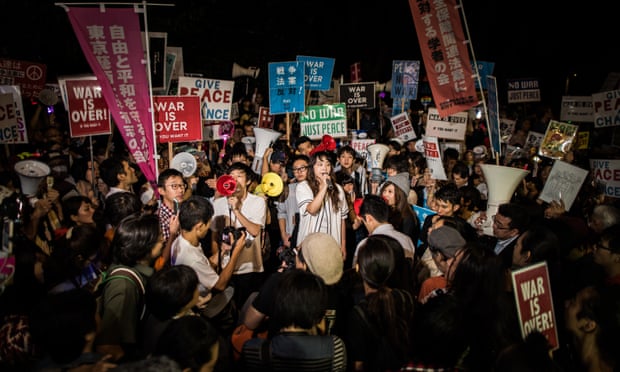In voting for the resolution, Supervisor David Campos thanked Lee for bringing her “gift of truth” to San Francisco.
At bottom, what moved the people of San Francisco was summed up by a number of leaders from women’s groups, who chorused, “If we let this go without calling it out, we are complicit to the crimes that happened 70 years ago,” noting that violence against women and girls still persists.
“This memorial helps break the cycle,” they said.
When hundreds of thousands in Japan protest the return to a militarized society, they are thinking about not only the nuclear annihilation of their cities but also the crimes against humanity committed by their own fascist government in the last century. The "comfort women" are witnesses to a particularly shameful chapter of Japanese history. Many were young Korean women who reported being kidnapped, held captive, and raped 20-30 times a day.
It took Ms. Lee 50 years to break her silence about her traumatic experiences as a "comfort woman."
Some of those opposed to this belated acknowledgement of truth used bullying tactics in San Francisco, a city with sizable Korean and Japanese communities.
They argued that she and all the “comfort women” were prostitutes who were conducting business with the soldiers, not conscripted and kidnapped. Their arguments were pathetic and crass... [Lee] remained poised throughout until, at one point, she shouted back at one of the deniers, “You were not there!”Ironically, since WWII both Korea and Japan have suffered the effects of colonial occupation by the U.S. military.
 |
| For a map key and details on each South Korean base, see http://militarybases.com/south-korea/ |
Also, rape of girls and women in areas surrounding U.S. bases has been and continues to be a source of suffering and outrage. Okinawa has been particularly affected, and the issue was used as a campaign platform by anti-base candidate Takeshi Onaga in his election as governor of Okinawa last year.
Meanwhile, repercussions continue following recent passage of security laws aimed at remilitarizing Japan by neutering Article 9 of their constitution. The U.S. applauded the laws that citizens of Japan poured into the streets to protest. As reported by major English-language news outlet Japan Times:




No comments:
Post a Comment